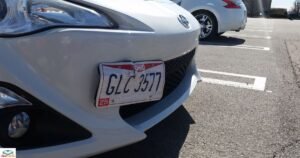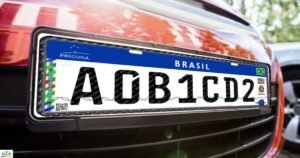License plates are an essential component of vehicle identification, serving as unique identifiers for cars, trucks, and motorcycles. But with the advancement of technology and the increasing prevalence of surveillance systems, many people wonder, Can someone find you by your license plate? Let’s delve into this question to understand the complexities and implications involved.
Understanding License Plates
License plates, also known as vehicle registration plates, are metal or plastic plates attached to vehicles for official identification purposes. They typically contain a combination of letters, numbers, and sometimes special characters, assigned by governmental authorities. The information on license plates varies across jurisdictions but often includes the following:
- Registration number
- State or country of registration
- Registration expiration date
- Vehicle make and model
The Role of License Plate Recognition (LPR) Technology
License Plate Recognition (LPR) technology, also known as Automatic License Plate Recognition (ALPR), is a system designed to automatically capture and process images of license plates.
This technology utilizes optical character recognition (OCR) to convert the alphanumeric characters on license plates into digital data that can be searched and analyzed.
How LPR Technology Works

Image Capture: LPR systems use specialized cameras to capture images of license plates from various angles and distances.
OCR Processing: The captured images are processed using OCR algorithms to extract the alphanumeric characters from the license plates.
Database Comparison: The extracted license plate data is compared against databases, such as law enforcement databases or private databases, to identify matches or discrepancies.
Alerts and Notifications: If a match is found, the system can trigger alerts or notifications to law enforcement agencies or other authorized parties.
Privacy Concerns
| Privacy Concerns | Description |
| Surveillance | LPR systems enable pervasive surveillance of public spaces. |
| Data Retention | Questions arise about the storage and retention of license plate data. |
| Misuse | Risk of misuse or abuse of LPR data for unauthorized surveillance. |
| Legal & Regulatory | Various legal frameworks govern the use of LPR technology. |
| Access Controls | Access to LPR data is restricted to authorized entities. |
Privacy concerns surrounding license plate recognition (LPR) technology highlight the need for transparent regulation and robust safeguards to protect individuals’ rights and prevent misuse.
Legal and Regulatory Framework

The use of LPR technology is subject to various legal and regulatory frameworks, which vary by jurisdiction. Some key considerations include:
Data Protection Laws: Many jurisdictions have enacted data protection laws that govern the collection, processing, and storage of personal data, including license plate data. Can Satellites Read License Plates?
Retention Policies: Some jurisdictions have established guidelines or regulations regarding the retention period for license plate data, imposing limits on how long this information can be stored.
Access Controls: Access to LPR data may be restricted to authorized entities, such as law enforcement agencies, with strict controls and oversight mechanisms in place.
Can Someone Find You By Your License Plate?
LPR technology enables the identification of vehicles based on their license plates, but it has limited ability to solely track individuals by their license plates. Here’s why:
Limited Information: License plate data typically includes information about the vehicle, such as its make, model, and registration details, rather than the owner’s personal information.
Restricted Access: Authorized entities, such as law enforcement agencies, usually restrict access to LPR databases and require valid reasons for accessing the data.
Accuracy Limitations: LPR systems may encounter challenges in accurately capturing and processing license plate data, especially in adverse weather conditions or low-light environments.
Protecting Your Privacy
LPR systems may capture your license plate, and you may not be able to prevent it. There are steps you can take to protect your privacy:
License Plate Covers: Some individuals use license plate covers or frames to obscure their license plates from view. Be mindful that certain jurisdictions have laws prohibiting the use of obstructive covers.
Data Minimization: Be cautious about sharing your license plate number unnecessarily. In online forums or social media platforms, search engines could index this, making it especially important.
Advocate for Regulation: Support initiatives that advocate for transparent regulation of LPR technology. This safeguards privacy rights and prevents misuse.
FAQ’s
How does license plate recognition technology work?
License plate recognition technology uses specialized cameras to capture and process images of license plates. OCR algorithms then extract alphanumeric characters for identification.
Is license plate data accessible to the public?
Typically, authorized entities restrict access to license plate data. These include law enforcement agencies, with strict controls and oversight mechanisms in place.
Are there legal regulations governing the use of license plate recognition technology?
Yes, many jurisdictions have enacted data protection laws and regulations that govern the collection, processing, and storage of license plate data.
Conclusion
LPR technology enables automatic vehicle identification through license plates. Factors such as legal regulations, access controls, and technology accuracy limit the tracking of individuals solely by their license plates.
The widespread adoption of LPR systems underscores the importance of addressing privacy concerns. Implementing robust safeguards is crucial to protect individuals’ rights.
Technology continues to evolve. It’s essential to strike a balance between public safety and personal privacy in the digital age.










